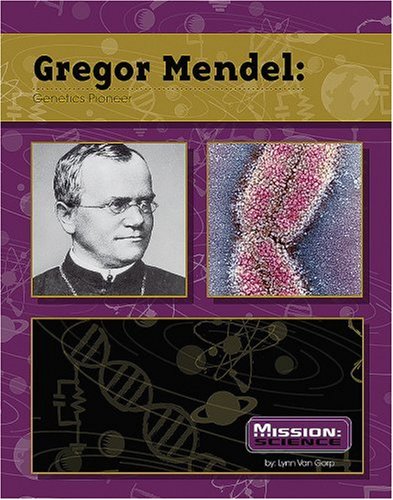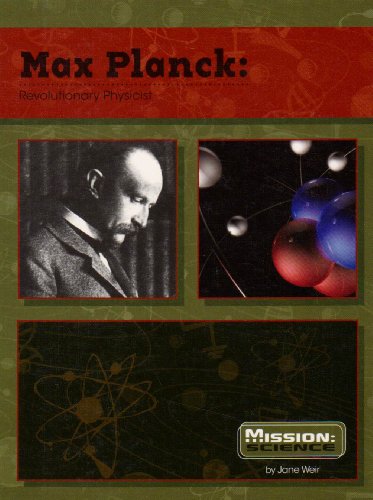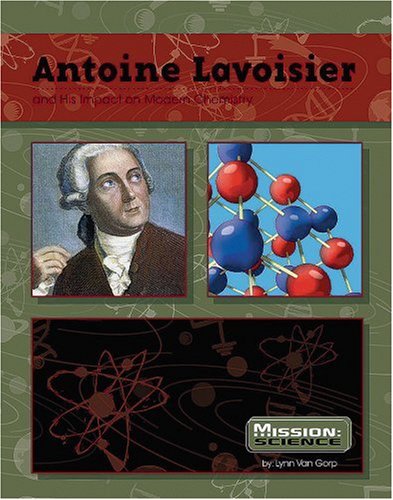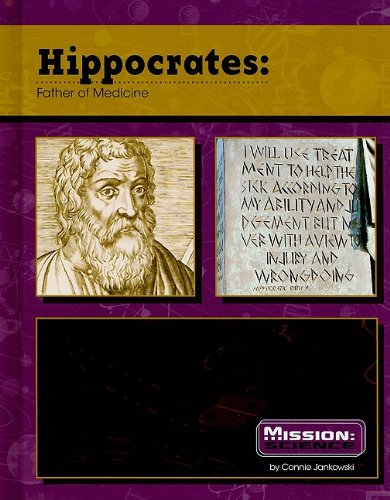-
Legends of American Dance and Choreography
Carin T. Ford
Library Binding (Enslow Pub Inc, March 1, 2000)Profiles ten influential and dedicated dancers and choreographers who worked in America, including Martha Graham, Fred Astaire, and Mikhail Baryshnikov.
-
Gregor Mendel: Genetics Pioneer
Lynn Van Gorp
Library Binding (Compass Point Books, Sept. 1, 2008)Born in 1822, Gregor Mendel grew up enjoying gardening and biology. His experiments with garden peas helped him explain how genetic traits in living thingssuch as hair color and eye color in humansare passed from generation to generation. For more information on genetics, read The World of Genetics, another book in the Mission: Science series. U
U
-
American Environmental Heroes
Phyllis M. Stanley
Library Binding (Enslow Pub Inc, May 1, 1996)A collective biography of ten American environmentalists, including Henry David Thoreau, Rachel Carson, Sylvia Earle, and George Washington Carver
-
Max Planck: Revolutionary Physicist
Jane Weir
Library Binding (Compass Point Books, Jan. 1, 2009)Max Planck is a Capstone Press publication. Y
Y
-
Marie Curie: Pioneering Physicist
Elizabeth R Cregan
Library Binding (Compass Point Books, Sept. 1, 2008)Cregan, Elizabeth R P
P
-
Scientists of the Ancient World
Margaret J. Anderson, Karen F. Stephenson
Library Binding (Enslow Pub Inc, April 1, 1999)Discusses the lives and contributions of ten influential scholars from the early years of scientific research, including Pythagoras, Archimedes, and Pliny. Y
Y
-
Albert Einstein: and His Theory of Relativity
Don Herweck
Library Binding (Compass Point Books, Jan. 1, 2009)To many, the name Einstein is interchangeable with genius. Albert Einstein was known for both his brilliant mind and his modest nature. He is most famous for his theory of relativity and his formula E=mc2. For more information, read Energy, another book in the Mission: Science series. X
X
-
American Women Inventors
Carole Ann Camp
Library Binding (Enslow Pub Inc, Feb. 1, 2004)Ten biographies of American women inventors, including Madam C.J. Walker, Lillian Gilbreth, Beulah Henry, Elizabeth Lee Hazen, Rachel Fuller Brown, Katherine Blodgett, Gertrude B. Elion, Stephanie Louise Kwolek, Edith Flanigen, and Ellen Ochoa. Y
Y
-
Artists and Writers of the Harlem Renaissance
Wendy Hart Beckman
Library Binding (Enslow Pub Inc, June 1, 2002)Profiles the lives of ten artists and writers of the Harlem Renaissance, including Langston Huges, Bessy Smith, and Duke Ellington, discussing their backgrounds, the struggles they faced, and their acomplishments.
-
Antoine Lavoisier: And His Impact on Modern Chemistry
Lynn Van Gorp
Library Binding (Compass Point Books, Sept. 1, 2008)What was called science in the 1700s was often not scientific. But a Frenchman, Antoine Lavoisier, was a real scientist. He experimented carefully, learned from other scientists, and shared his findings. He discovered important things about chemicals and identified many basic substances, called elements. Lavoisier, known as the founder of modern chemistry, also created the system for naming combinations of elements that scientists still use today. For more information, read Elements, another book in the Mission: Science series. Y
Y
-
Hippocrates: Father of Medicine
Connie Jankowski
Library Binding (Compass Point Books, July 1, 2009)Hippocrates is known as the father of medicine. He separated religion from medicine and tried to find scientific reasons for why people became ill. By observing a patient’s symptoms he was often able to diagnose illnesses and find cures. He encouraged his patients to take care of their bodies and urged fellow doctors to practice good hygiene and have a positive bedside manner. He founded a medical school in Greece to share his knowledge of medicine and philosophy. His code of ethics became known as the Hippocratic Oath. For more information, read The Human Body, another book in the Mission: Science series. W
W
-
Congressional Medal of Honor Recipients
Kieran Doherty
Library Binding (Enslow Pub Inc, Jan. 1, 1998)Provides brief biographies of eleven recipients of America's highest military honor